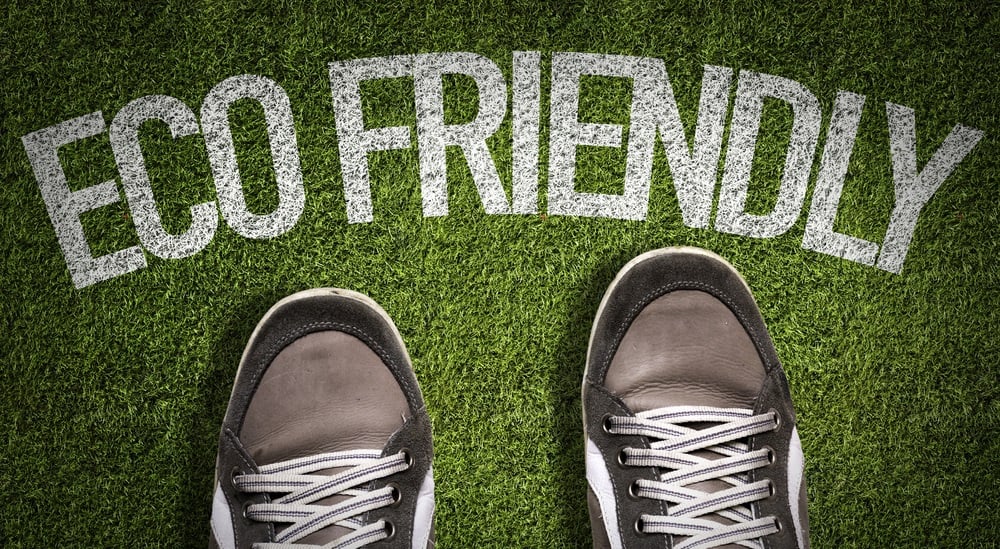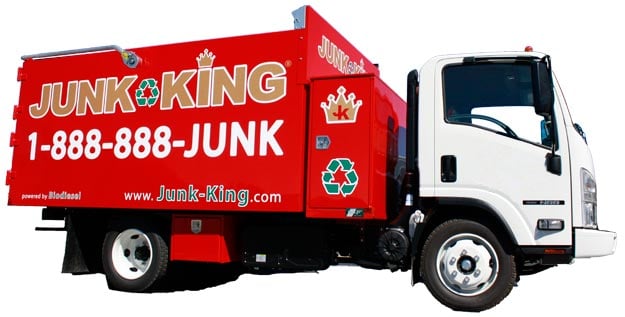
[This article was previously published in March 2019 and has been expanded and revised.]
Everyone loves a green lawn. But finding ways to keep it that way with a truly "green" approach can be challenging.
As any homeowner or renter with a lawn knows, there are dozens if not hundreds of lawn care and landscape products on the market. These range from low-end, sometimes questionable products to highly-priced name brand items, all purporting to help your lawn or landscaping look its best.
But for products that are designed to make your outdoors green, how "green" are they?
A Green Approach to Landscape and Lawn Care
The last thing any gardener or owner of a lawn wants to do it knowingly spread toxic material all over the place. Yet, that is precisely what can happen to the unaware. In fact, the typical suburban lawn isn't nearly as environmentally friendly as we might like to believe.
According to one source, every year across the country, lawns consume nearly three trillion gallons of water a year, 200 million gallons of gas in the mowers and other power tools, and more than 70 million pounds of pesticides. These lawn care chemical products may promise a lush and green lawn, but they come with a range of dangers.
Pesticides and herbicides, in particular, can have a negative effect on human health and the environment. They can contaminate water sources, harm beneficial insects and pollinators, and even pose a risk to birds and other wildlife. Additionally, the excessive use of synthetic fertilizers can lead to water pollution and the growth of harmful algae.
However, there is good news for those who want a green lawn without the harmful chemicals.
Organic and eco-friendly lawn and landscape products have become more widely available, offering a safer and more sustainable approach to lawn care. By using these products and adopting organic practices, homeowners can create a healthier environment for themselves, their families, and the planet.
Pesticides and Fertilizers: More Harm than Good?
According to an article at the NRDC website,
"You may also know that turf grass, however welcoming it looks for our bare feet, provides virtually no habitat for pollinators and other animals and plants that make up a healthy, diverse ecosystem. In fact, these lawns can do substantial harm to the environment and to both vertebrates and insects.
Birds, for instance, may ingest berries and seeds that have absorbed pesticides from the ground. Likewise, rainwater runoff from lawns can carry pesticides and fertilizers into rivers, lakes, streams, and oceans via the sewer system. This can poison fish and other aquatic animals and harm humans who swim, surf, and eat seafood that may be contaminated. And then, of course, lawn mowers can pollute the air."
Most fertilizers contain the essential nutrients that plants need: nitrogen, potassium, and phosphorus . And while these materials can help grow healthy plants, many additional lawn products, like pesticides and herbicides, can have a negative effect on humans and our environment.
In addition, many people unwittingly apply too much fertilizer and, as a result, the excess plant nutrients run off into nearby waterways which then pollute local streams, ponds, and lakes. This polluted water can create excessive algae and decrease the amount of oxygen in the water.
But there's good news for lawn lovers!
Organic Lawn and Landscape Products
In the old days before organic and eco-friendly products came on the scene in a big way, anyone who wanted to use "organic" and non-synthetic materials often had to concoct them themselves. But all of that has changed as organic and earth-friendly products of all kinds have come into vogue.
To have a full, healthy lawn your soil needs to be rich in nutrients, especially nitrogen, phosphorus, and potassium. However, while the all-purpose organic fertilizers usually include equal amounts of all three of these major nutrients, soil that's deficient in only one or two nutrients really only needs those added back or you can have overfeeding problems.
With a soil test to determine the actual soil needs of your lawn or landscaping, you can find good, special-purpose fertilizers that provide more specific formulas, with a nutrient ratio to meet your soil needs.
Organic, eco-friendly lawn fertilizers usually come in a few different types. For example, you can use dry fertilizer, which is typically sprayed on larger lawn areas with a spreader. This type of fertilizer tends to stay on top of the soil for a long period of time and, as a result, requires fewer applications.
You can also buy liquid fertilizers that are absorbed quickly into the soil after being applied through a hose, but that usually needs to be reapplied more often.
And there are even alternatives to using commercially produced, organic products for your lawn care needs. According to one article,
"Another environmentally friendly way to improve the soil conditions in a yard is to spread compost, either plant matter only or containing manure from animals. Manure from different animals will contain different nutrient ratios. Compost of either variety can be spread over a lawn in a thin, 1/2-inch-thick layer. Other ways to add nutrients into soil include leaving grass clippings where they land, letting the material decompose naturally, and spreading clovers, natural nitrogen producers, over the lawn."
For more information on green lawn and landscaping products here are some resources for you to check out before you start spreading questionable chemical products around your home!
Five Green Practices for a Green Landscape and Lawn
Here are five ways to care for a lawn using green and eco-friendly practices:
- Water Efficiently: Watering your lawn efficiently is crucial for conserving water. Consider using a sprinkler system with smart timers or moisture sensors that adjust watering based on the needs of your lawn. Water early in the morning to minimize evaporation, and avoid overwatering to prevent wastage and the growth of shallow roots.
- Choose Native Plants: Opt for native plants and grasses in your lawn. Native species are adapted to the local climate and require less water, fertilizer, and pesticide use. They also provide habitat for local wildlife and help maintain biodiversity.
- Practice Natural Lawn Care: Instead of relying on synthetic fertilizers and pesticides, adopt natural lawn care practices. Use organic fertilizers made from compost or natural sources, which release nutrients slowly and improve soil health. Embrace natural pest control methods like integrated pest management, which involves using beneficial insects, proper mowing techniques, and targeted treatments only when necessary.
- Mulch Grass Clippings: Leave grass clippings on the lawn after mowing. They act as a natural fertilizer, returning nutrients to the soil and reducing the need for additional fertilizers. This practice is known as grasscycling and helps improve soil health while reducing waste.
- Consider Alternative Lawn Designs: Explore alternative lawn designs that reduce maintenance and resource requirements. For example, you could incorporate more landscaped areas, native plant beds, or permeable surfaces to reduce water runoff and promote biodiversity. Xeriscaping, which uses drought-tolerant plants and reduces the need for irrigation, is another option to consider.
By implementing these eco-friendly practices, you can maintain a green and healthy lawn while minimizing negative impacts on the environment.
Even a "Green" Landscape Needs Yard Waste Removal
You long ago learned that yard waste can come in many forms.
The winter storms left broken tree branches all over your yard. Maybe you’ve started a major gardening or landscaping project that’s left dirt and debris everywhere. Or you may simply have a large amount of junk and clutter in your yard that you haven’t had time to clean up.
Whatever it is and whatever the reason, Junk King provides an efficient, safe and eco-friendly yard waste removal service so you don’t need to worry about the pick up or disposal of your yard debris. Our experienced debris removal team will break down and haul off any types of yard waste you have. Unlike the backseat of your car, our junk removal trucks are made to handle those dirty yard debris items.
Ready to get rid of your yard waste? We make it simple for you!
Make an appointment by booking online above or by calling 1.888.888.JUNK (5865).
Our professional and insured yard waste removal team will show up at your home or office, and we’ll call 15 minutes before we arrive on site. Once there we’ll give you a free estimate based on how much room your junk takes up in our truck. You just point, and we haul the debris into our junk removal trucks, with no hidden fees.






